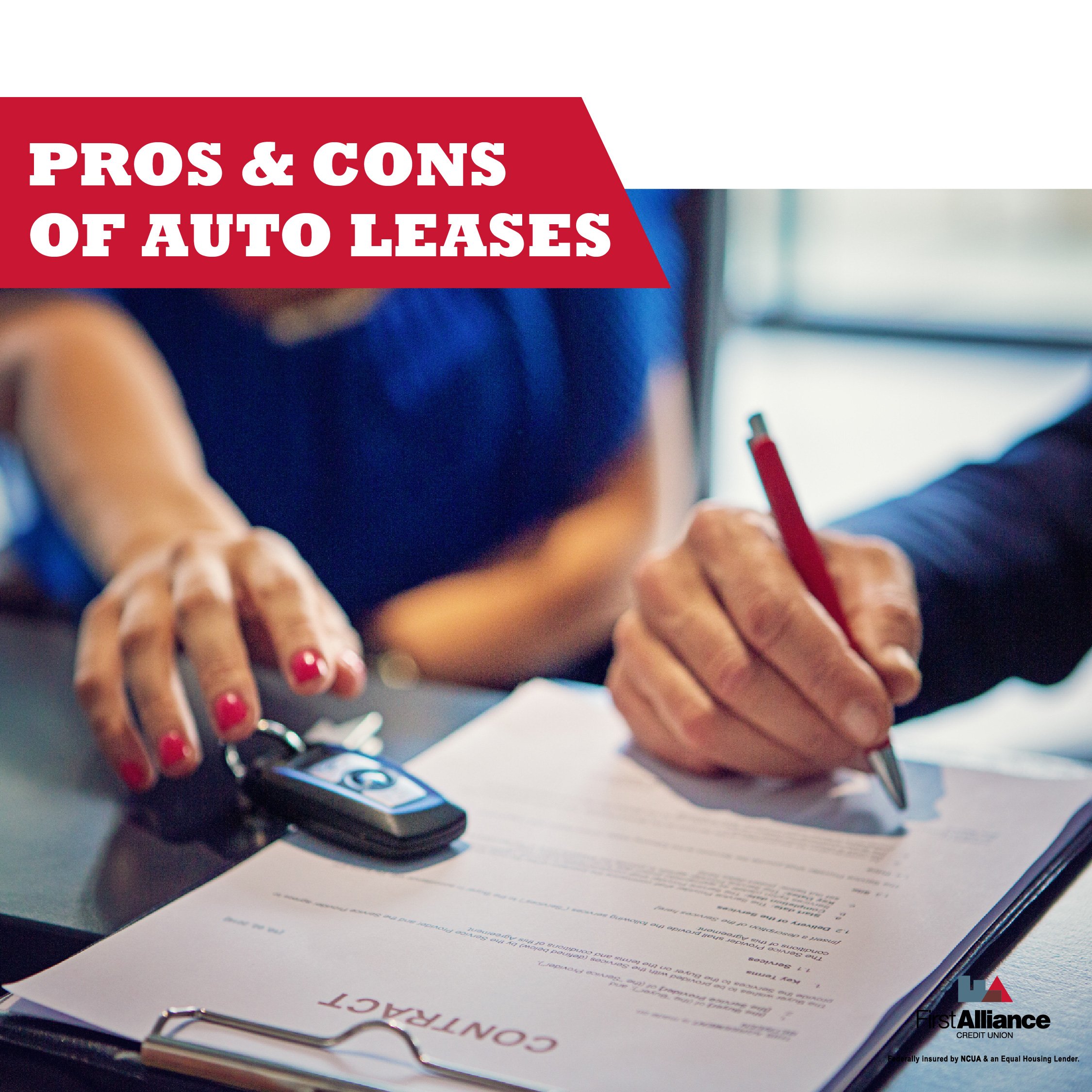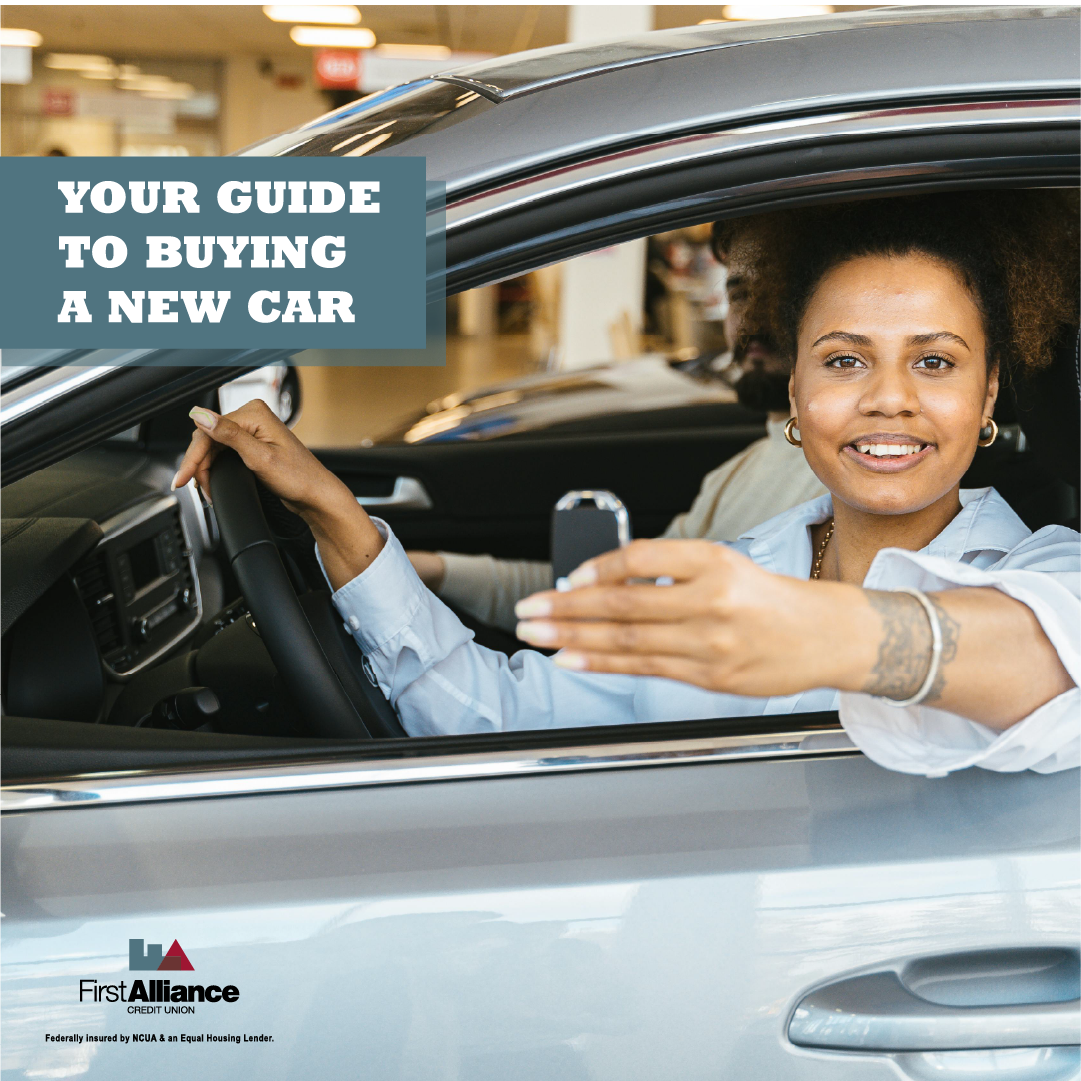The Pros and Cons of Auto Leases
When you lease a car, you only pay for a portion of the car’s actual cost while acquiring a new or used car. So, if you are leasing a car, then you...
2 min read
![]() First Alliance Credit Union
:
Sep 19, 2019 7:53:00 AM
First Alliance Credit Union
:
Sep 19, 2019 7:53:00 AM

Is it better to lease a car or buy a car? It really depends on the specifics of each individual situation and well worth the time to consider both. Take the time to do your research and to think through all of the options that are best suited for you. We’ve put together some information to help you better understand the difference between buying and leasing a vehicle.
Lease and purchase loans are two different ways by which you can finance an automobile. Many people assume that leasing is same as renting, but that is not the case. Although leasing may seem similar to renting, car leasing and renting are completely different methods and should not be confused as being one.
With a lease you are paying for the vehicle’s depreciation during the term of the lease. These payments are typically lower than a loan payment but will still include interest charges, taxes and fees. Up-front costs will typically include the first month’s payment, a security deposit, taxes, registration and other applicable fees.
When buying a vehicle, you pay the entire purchase price plus finance charges, taxes and fees and any interest on a loan. Loan payments will typically be higher than lease payments because you are paying off the entire purchase price of the vehicle.
One of the benefits to leasing a car is the low out-of-pocket cost. Leasing requires little or no down payment and when you return the vehicle at the end of the term you pay end-of-lease costs and walk away. Furthermore, the monthly payments are low, and you have the added benefit of driving a new vehicle every few years.
 In basic terms, a lease means that you ‘rent’ the vehicle for a fixed number of months. Consequently, you only pay for the use of the car during that period, the full depreciation of the car is not forced upon you. If the vehicle is being used for business purposes, a lease may offer a business tax advantages (consult your tax advisor for specifics).
In basic terms, a lease means that you ‘rent’ the vehicle for a fixed number of months. Consequently, you only pay for the use of the car during that period, the full depreciation of the car is not forced upon you. If the vehicle is being used for business purposes, a lease may offer a business tax advantages (consult your tax advisor for specifics).

The principal benefit of buying an automobile is that you are the owner. Buying a car denotes that one day you will be free of car payments and you will not be locked into any fixed ownership regulations as subjected to with a lease.
There are also insurance benefits, where rates are typically lower when you purchase a vehicle. In addition, you will not have the worry of mileage limitations associated with leasing.
If you are planning to buy a car, be aware of how it differs from leasing. This article will help you better understand the differences between purchasing or leasing a vehicle. Both options have advantages and disadvantages to be aware of during your decisions making process.

When you lease a car, you only pay for a portion of the car’s actual cost while acquiring a new or used car. So, if you are leasing a car, then you...

Are you currently on the hunt for a brand-new vehicle? It's can be an exhilarating and daunting experience. With so many factors to consider such as...

Buying a used vehicle is a great way to lower the initial purchase price of your car and reduce or even eliminate your monthly payments. At the same...